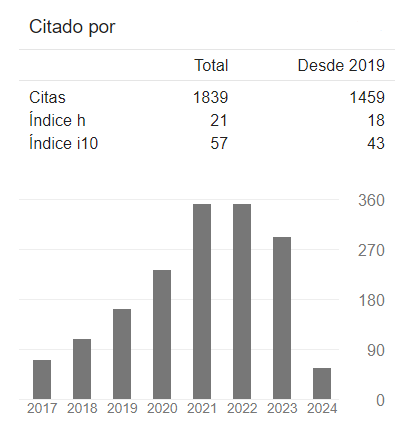Legal personality of commercial companies
DOI:
https://doi.org/10.24142/raju.v11n23a4Keywords:
juridical personality, fiction, reality, attributes, heritageAbstract
The juridical personality of commercial companies implies an important consideration for the faculties that it observes through the identification of: the form of acquisition, its attributes, the form in which it is lost, and the actions that can be developed to contemplate itself. Within the indicated attributes, it is inserted, with greater relevance, the one of the patrimony through which the own assets of the associates and those of the corporate entity are separated. Nor should we forget the additional attributes of legal personality developed by the doctrine, within which are the name, address, capacity, nationality and its state: current, in causal of dissolution and liquidated. In our legal system, and depending on the type of company that is intended to be constituted, legal personality is acquired in two ways, through the elaboration of the public deed (for companies regulated under Decree 410 of 1971), or by registration of the written or private document that gives life to the company (for the Sole-Share Company and the Simplified Shares Company). The juridical personality observes its birth from diverse theories, which roughly can be summarized in 1) the theory of the fiction, that welcomes our normativity in the light of the provision of article 633 of the Civil Code, and which gives form to a legal fiction established by the legislator 2) theory of reality, which consists in giving formal existence to a figure that exists in the society in a material way. It should also be noted that the Colombian Constitutional Court recognizes in multiple judgments the existence of legal personality, and the scope it offers within the mercantile development, that is how it authorizes its protection through guardianship.
References
Brunetti, A. (1960). Tratado del derecho de las sociedades. Buenos Aires: Unión Tipográfica Editorial Hispano Americana.
Escuti, I. (2006). Sociedades. Buenos Aires: Argentina: Astrea.
Garrigues, J. (1987). Curso de Derecho Mercantil. Bogotá: Temis.
Gaviria, E. (2004). Apuntes sobre el derecho de las sociedades. Medellín: Señal Editora.
Leal, H. (2010). Derecho de sociedades comerciales. Parte general y especial. Bogotá: Leyer.
Neira, L. C. (2006). Apuntaciones generales al derecho de sociedades. Bogotá: Temis.
Peña, L. (2011). De las sociedades comerciales. Bogotá: Temis.
Pinzón, G. (1977). Sociedades comerciales. Bogotá: Temis. Superintendencia de Sociedades (2007). Oficio 220-049608. Recuperado de http://www.supersociedades.gov.co/superintendencia/normatividad/conceptos/conceptos-juridicos/Normatividad%20Conceptos%20Juridicos/27719.pdf
Velásquez, C. A. (2008). Instituciones de derecho comercial. Medellín: Señal Editora.
Vivante, C. (1932). Tratado de derecho mercantil. Madrid: Reus.
Published
How to Cite
Issue
Section
License
La rivista consente all'autore (s) di mantenere i diritti di pubblicazione senza restrizioni.
Le journal permet à l'auteur (s) de conserver les droits de publication sans restrictions.
The journal allows the author (s) to retain publication rights without restrictions.
La revista le permite al autor(es) retener los derechos de publicación sin restricciones
Die Zeitschrift ermöglicht es dem / den Autor (en), Veröffentlichungsrechte ohne Einschränkungen zu behalten.
A revista permite que os autores mantenham os direitos de publicação sem restrições.











































